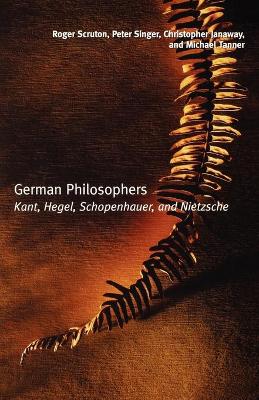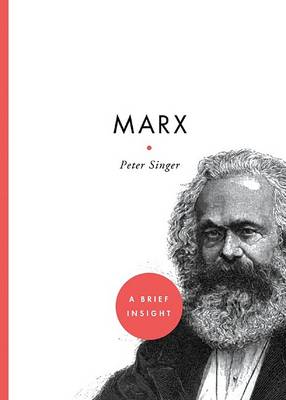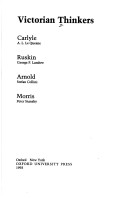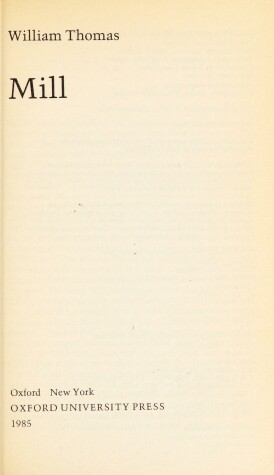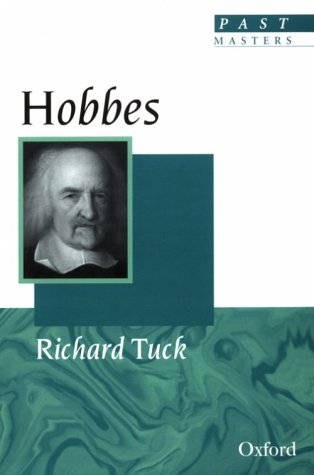Past Masters S.
7 total works
Niccolo Machiavelli taught that political leaders must be prepared to do evil that good may come of it, and his name has been a byword ever since for duplicity and immorality. Is his sinister reputation deserved? In answering this question Quentin Skinner focuses on three major works, The Prince, The Discources , and The History of Florence , and distils from them an introduction to Machiavelli's doctrines of exemplary clarity. This book is intended for students from sixth-form level upwards of politics, history, the Renaissance.
Great Political Thinkers
by Quentin Skinner, etc., Richard Tuck, William Thomas, and Peter Singer
Published 1 April 1992
This book contains studies of four of the most influential political theorists in the Western tradition: Machiavelli, whose name is a byword for duplicity, Hobbes, the first great English political philosopher, Mill, liberal thinker and champion of individual liberty, and Marx, whose legacy has affected the lives of millions. This book is aimed at students of political and economic history, political theory, as well as general readers.
German Philosophers
by Roger Scruton, Peter Singer, Christopher Janaway, and Michael Tanner
Published 6 March 1997
German Philosophers contains studies of four of the most important German theorists: Kant, arguably the most influential modern philosopher; Hegel, whose philosophy inspired an enduring vision of a communist society; Schopenhauer, renowned for his pessimistic preference for non-existence; and Nietzsche, who has been appropriated as an icon by an astonishingly diverse spectrum of people.
Peter Singer identifies the central vision that unifies Marx's thought, enabling us to grasp Marx's views as a whole. He sees him as a philosopher primarily concerned with human freedom, rather than as an economist or social scientist. He explains alienation, historical materialism, the economic theory of Capital , and Marx's idea of communism, in plain English, and concludes with an assessment of Marx's legacy. This book is intended for students from sixth-form upwards of politics, economics, philosophy, history, Marxism.
Victorian Thinkers contains studies of four of the most influential critics of 19th-century British culture. Each was heralded a prophet in his own lifetime, and yet each was also regarded as misguided, and even mad, by his contemporaries. Their interests in art and culture led them to develop views on society and economics. Carlyle was a writer of extraordinary stature, radical in thought and style; Ruskin, who began his career as a critic of painting and architecture, developed his views to produce critiques of economics and social welfare; Arnold was a poet and literary critic, a definer of "culture" who later turned to social issues; and Morris, renowned for his work as artist and designer, championed a revolutionary socialism which would honour the civilizing effects of the arts. A.L. Le Quesne is also the author of "After Kilvert". George Landow has also written "The Aesthetic and Critical Theories of John Ruskin" and "Victorian Types, Victorian Shadows: Biblical Typology in Victorian Literature, Art and Thought".
Stephan Collini is also the author of "Liberalism and Sociology", "That Noble Science of Politics" (with Donald Winch and John Burrow) and "Public Moralists: Political Thought and Intellectual Thought and Intellectual Life in Britain 1850-1930". Peter Stansky is also the author of "Redesigning the World: William Morris, the 1880s, and the Arts and Crafts".
Stephan Collini is also the author of "Liberalism and Sociology", "That Noble Science of Politics" (with Donald Winch and John Burrow) and "Public Moralists: Political Thought and Intellectual Thought and Intellectual Life in Britain 1850-1930". Peter Stansky is also the author of "Redesigning the World: William Morris, the 1880s, and the Arts and Crafts".
Economist, philosopher, civil servant, and politician, John Stuart Mill (1806-1873) made his mark as a liberal in Victorian society. His major works--System of Logic and Principles--as well as his famous essays--"On Liberty" and "Women"--reveal his extraordinary skill at clarifying difficult political and philosophical problems. Based on a detailed assessment of the influences on Mill's life, William Thomas traces the main ethical, economic, and psychological doctrines explored in his work and offers an unusual interpretation of the origins and development of Mill's philosophy.
Thomas Hobbes (1588-1659) was one of the first great English political philosophers and his book "Leviathan" was one of the first truly modern works of philosophy. He has long had the reputation of being a pessimistic atheist, who claimed that human nature was inevitably evil and who proposed a totalitarian state to subdue human failings. In this study, Richard Tuck shows that while Hobbes may have been an atheist, he was far from pessimistic about human nature, nor did he advocate totalitarianism. By setting him in the context of his age, Dr Tuck reveals Hobbes to have been passionately concerned with the refutation of scepticism in both science and ethics, and to have developed a theory of knowledge which rivalled that of Descartes in its importance for the formation of modern philosophy.

